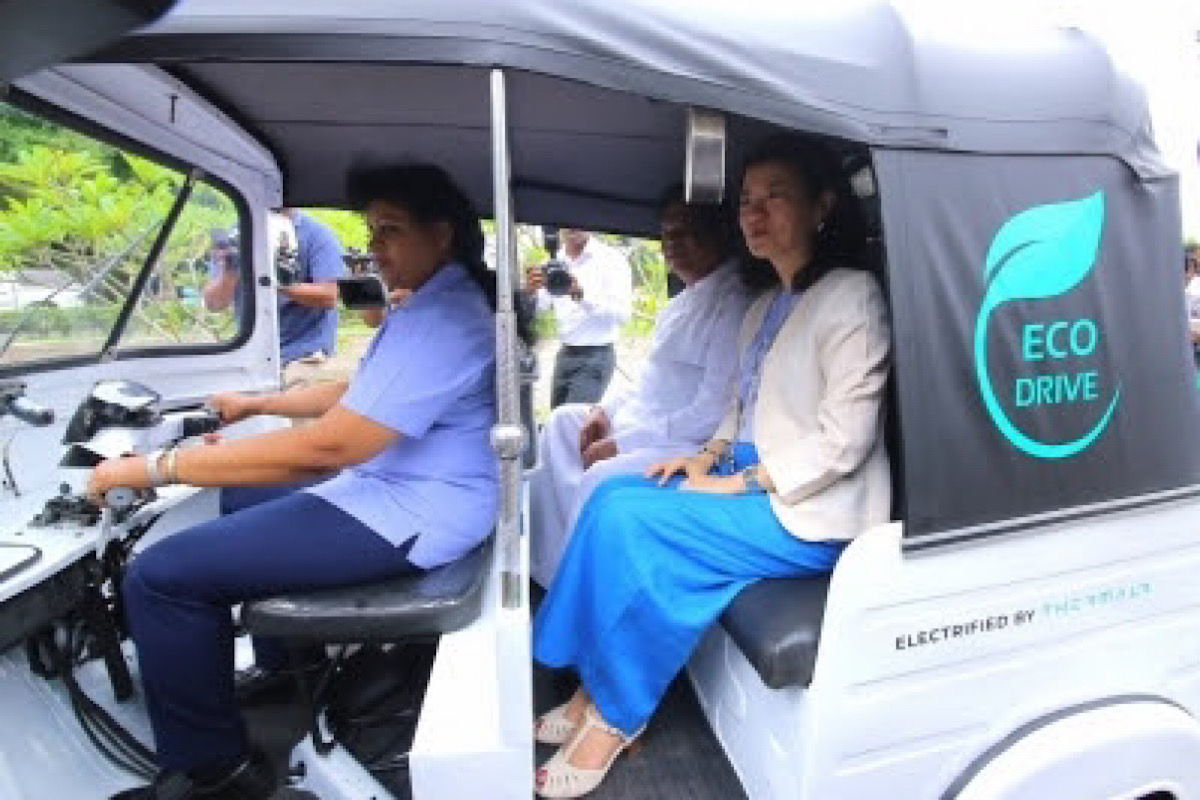Sri Lanka to host India and South Africa in women’s tri-nation series
Sri Lanka will host a ti-nation women’s ODI series, involving India and South Africa during the months of April and May.
Facing a severe energy crisis amid the financial downturn, Sri Lanka mulls to switch to electric mobility by converting 500,000 ‘tuk-tuks’ (autorickshaws) to electric vehicles (EVs) within the next five years.

SL to convert 500,000 tuk-tuks to EVs (Photo:IANS)
Facing a severe energy crisis amid the financial downturn, Sri Lanka mulls to switch to electric mobility by converting 500,000 ‘tuk-tuks’ (autorickshaws) to electric vehicles (EVs) within the next five years.
Backed by the United Nations Development Program (UNDP) in Sri Lanka, the Ministry of Transport and Highways and the Ministry of Power and Energy, together with the Department of Motor Traffic and the National Transport Commission started the project to mainstream e-mobility by converting to e-tuk-tuks.
Advertisement
Sri Lanka has nearly 1.2 million tuk-tuks mainly imported from India. However three-wheeler import from India has dropped to almost zero since government’s 2022 decision to ban import of vehicle due to the dollar crunch.
Advertisement
Unable to import necessary fuel, nearly 500, 000 tuk-tuk drivers who were solely dependent on hires became jobless with weeks long queues in last year.
“With the prevailing socio-economic crisis in the island, a shift towards adopting sustainable mobility approaches has been identified as a necessity for a green recovery process,” the UNDP stated while launching the project on Thursday.
The project aims to support the conversion of petrol three-wheelers to electric three-wheelers.
The proposed three-phased project consists of an incubation phase, a demonstration phase and an acceleration phase. The incubation phase will test the conversion process, the demonstration phase will support conversions and the acceleration phase will use market forces for conversion through concessional financing and infrastructure development.
“This pilot project is a part of UNDP’s Green Development Portfolio which is currently being developed. This portfolio aims to build solutions and support Sri Lanka’s development in catalysing low-carbon, green, and inclusive development within which sustainable transportation and e-mobility play a key role,” UNDP’s Resident Representative, in Sri Lanka Azusa Kubota, said highlighting UNDP’s role in the pilot project.
The incubation phase will support the conversion of 200 petrol three-wheelers to electric three-wheelers.
For the incubation phase, a number of criteria have been introduced for selection vehicles and owners. These criteria include: the age of tuk-tuk should not be greater than 10 years from date of manufacture, only petrol 4-stroke three-wheelers are eligible, priority would be given to applicants whose livelihood is dependent on a single three-wheeler, and preferential selections are to be given to women owners, operators and persons with disabilities.
“Electric three-wheelers will not only benefit individual operators but also contribute to spring boarding the country’s economic recovery process,” Transport and Highways Minister Bandula Gunawardena said.
Advertisement